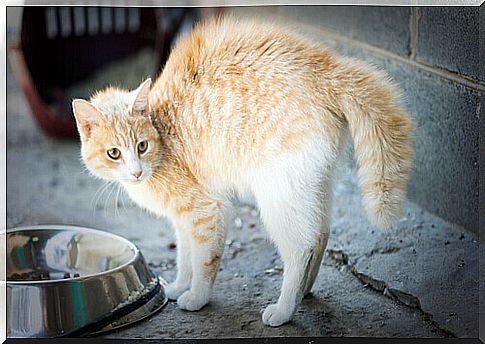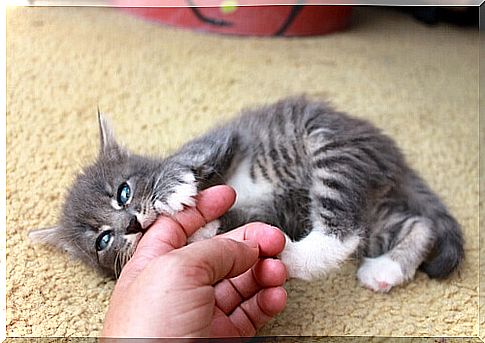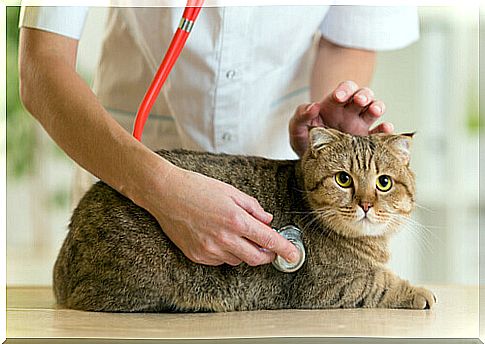5 Causes Of Phobia In Cats

Anyone who has a cat knows how sensitive these animals can be to situations that change their daily habits. From uncommon noises to changing the arrangement of furniture, today we explain what are the main causes of phobia in cats and how to remedy them.
Phobia in cats
Cats are territorial animals, who want to be in control of where they live. This is why some changes in the surrounding environment can cause fear. However, when this fear becomes disproportionate, we are faced with a phobia.
Among the main causes of phobia, we point out:

- Uncommon and sudden noises. For example: trains, alarms, sirens, different types of appliances in operation, etc.
- Presence of strangers in the house. This usually happens if the cat has not socialized properly.
- Contact with unknown animals.
- Removals or temporary movements to places that are foreign to him.
- Changes in the arrangement of furniture or the presence of new objects in the house.
How to recognize a phobic cat?
Phobias in cats are easily recognized and generally have a solution, although they are more difficult to treat than fears. For this, it is important that you are able to identify the signals in time.
Faced with situations considered dangerous, cats suffer from a state of anxiety and can react in different ways. Including:
- They run away and go into hiding in a place considered safe.
- They are likely to attack (their fur stands up, arches their backs, blows or tilt their ears back).
- They remain motionless, as if paralyzed, and sometimes they tremble.
- They may have tachycardia and diarrhea.
- They become hyperactive and aggressive.
- They mark the territory with urine or feces in any part of the house.
- They lick themselves excessively, until they lose their hair.
Tips for dealing with a cat suffering from a phobia
Remember that when a cat is altered by fear, you shouldn’t approach, touch it, much less try to pick it up. The most likely thing is that it tries to scratch or bite you.
Leave him alone for a while and when you see him calm, try to approach again, without forcing the situation.
In addition, it is ideal that your cat can count on a space in the house where he feels safe and in which he can hide when he feels fearful for some reason.
Remember that, in such situations, you must avoid scolding or chastising him. By doing so, you will only aggravate the situation and make solving the problem even more complicated.
Consult an animal behavior specialist
That “intense, irrational, excessive fear of a person, thing or situation,” as it is technically defined, will surely require professional help.
The veterinarian or an animal behavior specialist (ethologist) are best placed to correctly diagnose and understand how to solve the problem.
You can contribute by identifying the situations, objects or beings to which your cat reacts disproportionately. So pay close attention to your pet, to be able to explain your observations in detail to the professional of your choice.

How to cure phobia in cats
A possible solution to this problem is to gradually put the animal in contact with the situation that causes it anxiety or fear. Thus the cat will gradually lose its fear.
For this reason, it is important to reward the cat when it shows improvements, either by caressing it, by giving it words of affection, or by giving it some food it likes.
As you will see, patience and love are always the secret to success, both with animals and with people.








